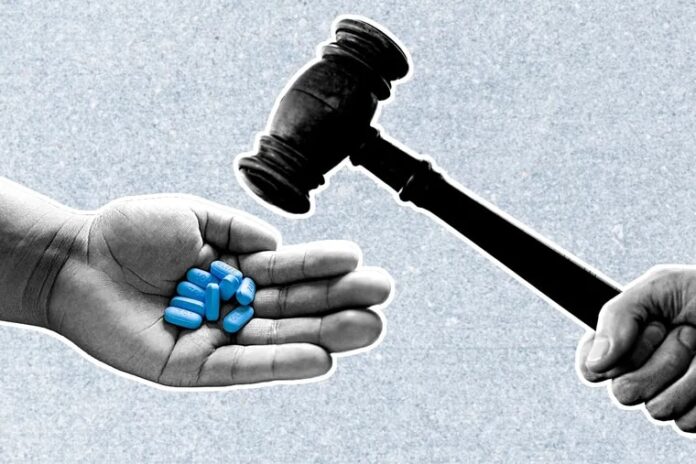/cloudfront-us-east-1.images.arcpublishing.com/pmn/3CZZOTSKWRHOTNM3WA2YNVMELM.jpg)
This month, a federal judge in Texas decided the Affordable Care Act’s process for determining which preventive services should be covered by health insurance is unconstitutional.
This decision has the potential to jeopardize access to free preventive health checkups for millions of Americans, as well as health services including cancer screenings, contraception, alcohol and drug abuse counseling, and HIV prevention.
The ruling explicitly targets pre-exposure prophylaxis (PrEP), a medicine that can help protect people from becoming infected with HIV. The decision states that the law violates the religious freedom of a company owned by conservative activist Steven Hotze, who believes PrEP facilitates and encourages “homosexual behavior.”
This decision is rooted in discrimination.
» READ MORE: Judge rules against required coverage of HIV prevention drug
HIV has been endemic to our nation for more than four decades. As public health scholars, we have documented the devastation this virus causes. We have lost loved ones to AIDS. We have seen people living with HIV lose their livelihoods and dignity, and be marginalized from their communities.
Since 1995, we also have witnessed advances in the treatment of HIV using powerful antiretrovirals. Today, HIV is no longer a death sentence, and we have medications that can prevent new infections.
In 2012, the Food and Drug Administration approved the use of PrEP, which is intended for people at risk for HIV transmission, including gay and bisexual men, people who inject drugs, and some transgender people. That’s an estimated 1.2 million Americans, according to the Centers for Disease Control and Prevention (CDC). But less than one-quarter of this population takes the drug, often because they can’t afford it. Coverage already is disproportionate, with Black and Latino people, young people, cisgender women, and transgender people representing the majority of those with low rates of PrEP use.
The Affordable Care Act increased access to PrEP and other preventive health services by requiring coverage by insurers and group health plans. It has improved health outcomes through earlier disease detection and treatment. More than 151 million people have access to free preventive care, including PrEP, under the ACA. At the same time, PrEP prescriptions have increased among those most at risk of HIV (25% in 2020, compared with 3% in 2015, according to the CDC), and we have seen a substantial decrease in the number of new HIV infections in the country (37,800 in 2015, compared with 34,800 in 2019).
“It costs less to give people PrEP than to pay for treatment for HIV.”
Ensuring that we continue this trend is critical. PrEP has been a game changer in our fight against HIV.
PrEP also saves millions of dollars. By preventing new HIV infections, PrEP is cost-effective — meaning, it costs less to give people PrEP than to pay for treatment for HIV. What’s more, the first PrEP medication that was approved — Truvada — is now available in a generic version, creating even more cost savings.
The Texas ruling would increase the number of people who can’t afford PrEP because their employers won’t cover the costs, and put them at higher risk of contracting HIV. While the only other legitimate protection — condoms — may provide good protection (if used correctly), PrEP provides nearly perfect protection. Without PrEP, the likelihood of infection — and lifelong treatment — will increase.
The federal judge’s decision in Texas would have us take steps back in our war on HIV and AIDS and jeopardizes a fundamental goal of a federal program known as Ending the HIV Epidemic in the U.S., which aims to have 50% of people who could benefit from PrEP using the treatment by 2030. The judge’s decision runs counter to critical aspirations for the health of our nation.
Without insurance coverage for PrEP, at-risk populations will continue to become infected with HIV, perpetuating this ongoing epidemic in our society. The federal judge’s decision would further spread the disease and suffering, causing harm to people in Texas and throughout the nation.
This ruling restricts the rights of already vulnerable, underresourced groups. It is inequitable, unfair, rooted in hate, and dangerous to the health and democracy of our nation.
Perry N. Halkitis is the dean of the Rutgers School of Public Health and a Hunterdon Professor of Public Health and Health Equity. Rafael E. Pérez-Figueroa is the associate dean for community engagement and public health practice at Rutgers and an associate professor of urban-global public health.








